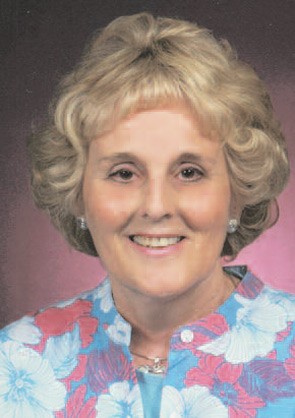
Care and Compassion
Marilee K. Phillips, RN, is a little out of breath and losing her voice. She’ll excuse herself several times as we talk to clear her throat, but she won’t ask to reschedule. She doesn’t want to say it, but there’s probably no other time to do this interview. In fact, she managed to squeeze it in just before a nursing meeting she’ll have to race to. In the circus of rheumatology, she’s the juggler.
Master Scheduler
“This job is all about making time,” she says, whispering out a direction to a coworker in between my questions. “I had three infusions scheduled today and two were two hours and one was one hour … so those were started and going well and then I had a couple phone calls. I’m recruiting for an osteoarthritis study for a new type of therapy. It requires a good deal of information and we’ve been busy with ads on the radio so you know we’ll get hit with calls. I try to sit and call these people back in between all the infusions. That’s when I’m not talking with pharmaceutical representatives or spending time with patient histories.”
It’s enough to make your head spin, but Phillips has been at this for more than 30 years, so some of it is purely second nature. “You should decide what you have to do before your day starts – prepare yourself mentally. But something can also interrupt your schedule and it’s always best to deal with that surprise now,” she explains. “Everything else, you know how much time it needs, so get it later.”
But you can’t allow the rush to get it all done to take over what’s important. “It’s always ‘How can we help this patient without spending too much time?’ ” notes Phillips, “But it’s never about length to a patient … it’s all about quality of time.”
Every day on her way to her morning shift, Phillips crosses the corner of Floyd and Gray in Louisville, Ky., then heads inside the Baptist Hospital for the 30-foot walk into the office. That length wouldn’t usually be notable, says Phillips, except that she works with patients with arthritis. “We have benches along that walkway,” she shares with concern.
As she strolls, Phillips could be debating whether to take on an extra study. “It’s always difficult to decide,” she says. “We hate to miss out on one, but sometimes you’re stretching yourself too far. We have to be able to tell the pharmaceutical people no, but in a nice way. It’s rare they won’t budge and work with you on scheduling.”
Busy from the Beginning
It seems like Phillips’ own schedule has always been filled. “When I graduated, I was pregnant with our first child, and I worked up until the pregnancy was over. We moved three or four times while I was doing hospital nursing, and I took a course called New Directions For Women.”
Little did she know how apt the title of the class would be. It was there she met the wife of David Neustadt, MD, the physician who would become her employer from the Nixon era to the present. “Dr. Neustadt had gotten a grant through Nixon’s $4.5-million grant for arthritis research and then he asked me into his private practice two years after that,” she says.
Phillips, now 63, is in the twilight of her career and – looking back – says the details can make or break a career. “I remember one patient who took part in a study,” she says. “I watched the way she was moving, and I guessed the study wasn’t helping her. Yet she kept saying it was. Finally, I took her aside and said, ‘Now I don’t think this is really doing it.’ She finally admitted it and we got her on something else. Soon she was feeling much better. I asked her why she didn’t speak up before, and she said it was because she was proud of always sticking things out. It’s our job as nurses to pay close attention to the hints a patient drops.”
But Phillips hasn’t just helped patients improve through her observations; she has even gotten them on staff. “We had a retired VA nurse in two studies and she had such a helpful way about her. I felt she might want out of retirement and talked to her about a job, and now she’s been part time with us for four years.”
I ask Phillips about the most memorable object in her office. She takes a moment and then it suddenly, wistfully comes to her. “Easy!” she laughs. “The grandfather clock.” For someone who finds time like Phillips, could it have been anything else?
Eric Butterman is a freelance writer based in New York City.


